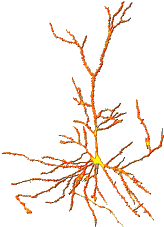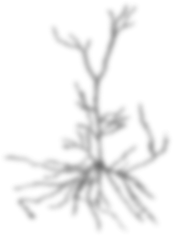|
|
|
|
- Neuroinformatics
-
|
Degree(s)
|
|
New students per year/session
|
25
|
|
Director
|
Emery Brown
|
Duration (yrs)
|
|
|
Location
|
Marine Biological Laboratory. Woods Hole, Massachusetts.
United States
|
|
Description
|
The ability to digitally acquire, store and analyze large volumes of multichannel data in the neurosciences, ranging from multiple spike trains to brain images, has given rise to a new and growing body of research. This two-week course is structured around the related issues, and will contain both pedagogical lectures on the basic statistical techniques as well as focussed mini-workshops on specific neuroscience topics where applications of these techniques are critical. The course is an outgrowth of the Workshop on the Analysis of Neural Data, which was previously held at the MBL from 1996 to 2001. Limited to 25 participants.- Scope:
- The scope is all forms of time series data gathered in a neuroscientific context. This includes point processes (single and multiple spike trains) and continuous processes (local field potential, EEG/MEG recordings, optical imaging data, fMRI and PET data). Techniques for exploratory and confirmatory analysis of the data will be treated along with the underlying scientific questions and potential biomedical applications. The goal is to provide pedagogical material as well as a forum for discussion. Questions of data formats, databases etc., will also be included in the workshop to the extent that they relate to the data types described above.
- Computer laboratory:
- A hands-on approach will be taken in a computer laboratory that forms an integral part of this course. Example data sets will be supplied, and participants are encouraged to bring their own data. We will use the high level languages MATLAB and S. The participants will be guided through applications of the analytical techniques to example data sets, and are also expected to perform research on their own data. This should benefit both experimental researchers and theorists who want to work with data.
- Intended audience:
- The course is targeted fairly broadly, ranging from experimental researchers (starting from the graduate level upwards) who are gathering the data to researchers with a theoretical or analytical orientation who work closely with data. A main aim of the course is to foster close interactions between the theorists and experimentalists. Course participants are expected to include researchers with specific interest in one of the data types that are in the scope, as well as researchers who have a broader scope. We have kept the scope broad since an important current direction in neuroscience is to integrate across different experimental modalities ranging from spike trains to fMRI.
|
|
|
http://www.mbl.edu/education/courses/special_topics/neufo.html
|
| Begin Date
|
2007-08-11
|
Application Deadline
|
2007-04-13
|
|
|
|
Short Courses, Visiting Fellowships and Lecture Programs
Please note that you saw this course posted at www.brainmapping.org
Course listings are placed here as a public service. Brainmapping.ORG is not responsible for their accuracy or content.
FAQ and HELP
|
|
|
|
|
|
|
We appreciate ideas to make brainmapping.org more useful. Submit your suggestions for changes and links here: [
suggestions
]
|



